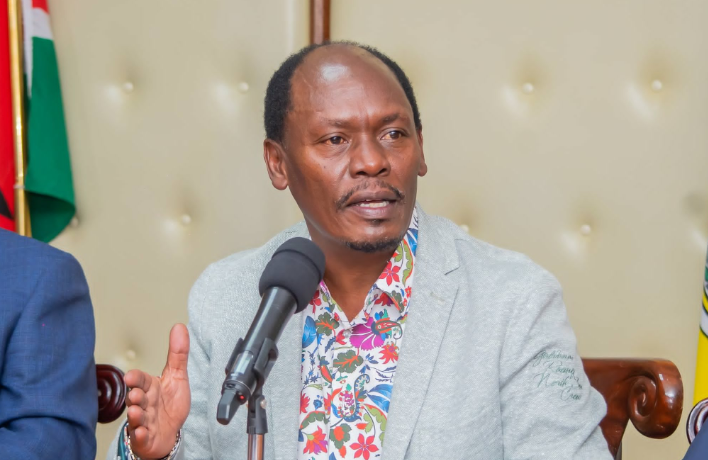
CS Kabogo warns Kenyans against irresponsible use of social media
The Statement by the ICT Cabinet Secretary, William Kabogo, that the government can shut down the social media platforms in case of a threat to national security, has sent ripples across Kenya. For Kenya, its digital space is equal parts a vibrant community space and a battleground between freedom of expression and state security concerns.
The Context Behind the Warning
This by CS Kabogo comes in after a series of incidents that have blamed the social media sites for national security issues. From organizing protests to spreading misinformation, which is usually used as a weapon when political tension is high or public order is at stake, social media has been involved in it all. Kabogo’s statement is a reaction to such events but also a reminder of the government’s regulatory powers over digital communication platforms.
What Was Said?

During a public address, Kabogo explicitly mentioned that while the government has no immediate plans to interfere with social media, it possesses the technical capability to “switch them off” if national security is at risk. He drew a historical parallel with Rwanda, where radio broadcasts were used for incitement during the genocide, illustrating how communication tools can be weaponized against peace and stability.
Implications for Freedom of Speech
This statement naturally raises concerns about freedom of speech and the right to information. Critics argue that such a policy could be used to stifle dissent or control the narrative, especially during political campaigns or when public opinion turns against the government. Activists and digital rights advocates have expressed worry over what this might mean for the digital freedoms Kenyans have enjoyed, emphasizing that freedom of expression is a constitutional right that should not be curtailed under the guise of security.
The Government’s Perspective
The government sees it as a necessary tool in the arsenal in the fight against such ills as hate speech, misinformation, and incitement to violence. According to Kabogo, this was prevention and not suppression, intended to shield the nation from possible digital chaos. The stance of the government, instead, seems to be one of being ready for immediate implementation, but more importantly, it lays responsibility on the usage of such platforms and their users.
Public Reaction
The reaction on platforms like X has been mixed. Some users support the government’s readiness to act, citing recent events where social media was used to organize disruptive activities or spread harmful content. Others are skeptical, seeing this as a threat to the vibrant online community and democratic discourse in Kenya. There’s a notable call for clearer guidelines on what constitutes a “threat to national security” in this digital context.
The Way Forward
What remains to be seen is how this policy will be implemented, if at all. There’s a delicate balance to strike between ensuring national security and upholding democratic values. Kabogo has suggested that the government would prefer not to resort to such drastic measures, instead urging for self-regulation among users and platforms. The discussion has opened up broader conversations about digital governance, the role of tech companies in managing content, and the future of internet freedom in Kenya.
Conclusion
The warning from CS Kabogo was a call to action for both social media platforms and their users in Kenya. No shutdown is imminent, but the statement is an assurance by the government that it is willing to act in cases where the situation gets extreme. It becomes a moment of reflection on the use of digital spaces, responsibility by tech giants, and a continued conversation between state security and individual rights in the digital age.
The incident is likely to shape policy-making and public debate, and possibly even the operations of social media companies in Kenya as part of efforts towards the realization of appropriate digital governance.
























